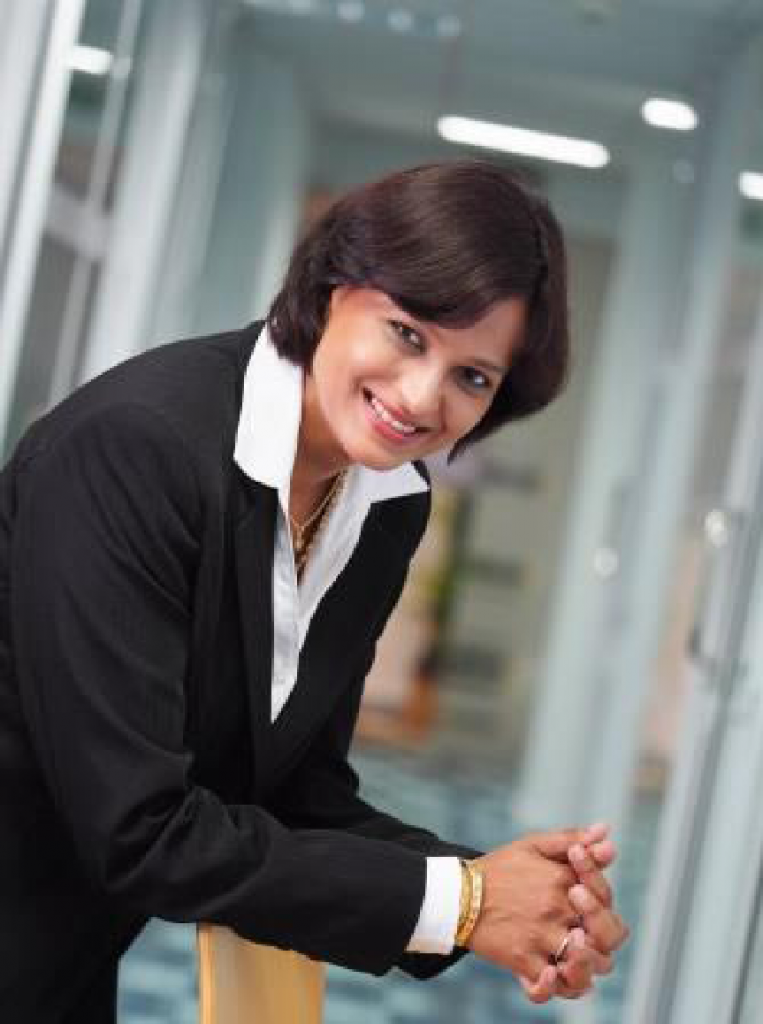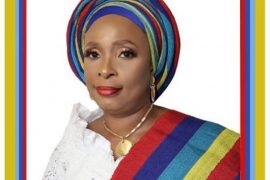There was a time when the words women and career did not go together, but times have changed. In 2017, there were 75,175,000 women aged 16 and older in the workforce, representing 46.9 percent of the total labour force.
While there is a significant representation of women in the workforce, women’s career paths have often been bumpy – pay inequity and the ever-present glass ceiling continue to be obstacles to women’s career advancement. Despite these challenges, women are becoming incrementally more successful in charting a career path and excelling in the workforce. In an interview with Amazons Watch Magazine, Mrs Sheila Ujoodha talks about her career growth path and how she was able to surmount the challenges.
Research tells us that you started your career as an internal audit manager and over the years, you have worked in several countries. Kindly tell us more about career journey and how you made your way to the top.
It all started with British American Tobacco (Mauritius), where I was appointed as the Internal Audit Manager and my mandate was extended to some African countries like Reunion, Kenya, Nigeria, Zimbabwe, Angola, Zambia, South Africa and Mozambique. The challenge was huge because of the urgency to get things done with limited resources from different cultural groups and a diverse business environment. Consequently, this amazing experience enabled me to be qualified as the best auditor in the EQUATA region (including 22 sub-Saharan African countries). Thereafter, this journey continued with the Rogers group and Cim Group. As the Chief Audit and Risk Executive, one of my key roles was to support the entity in achieving its strategy and long-term goals by mitigating business risks.
After the significant exposure on world-class audit and risk management practices, I always felt that at some point, I would need to translate the experience I gained in multinationals and my innovative skills in the audit and risk management field to the benefit of Mauritian businesses. Being open to exciting challenges, I wanted to mark my presence in international audit-related forums for instance as a speaker at the MIS Training 12th Annual Audit, Risk and Governance Africa conference. In 2018, an opportunity arose, and I seized it to pursue my dream and SmarTree Consulting Ltd. was born.
I have not risen to my current title by accident. I had trust in myself and used my own voice! Speaking confidently and taking the bull by the horns with a relentless approach form part of my skillset. Self-credibility was nurtured on the need to build healthy relationships with advocates, create a strong personal brand, project and position me as an expert in my field of work.
Gender initiatives which garner support from both men and women have been key enablers to my success. It is crucial to support and empower each other, starting with our basic principles of who we are – our morals, values, integrity, humbleness, passion, excellence and enthusiasm toward laying the foundation for progress through work and show togetherness; all these have helped to overcome my journey towards a leadership position.
Today, as a fellow member of the Chartered Institute of Certified Accountants and the Managing Director of SmarTree Consulting Ltd, I am portrayed as a highly experienced professional with hands-on experience in internal audit, risk management, corporate governance and process improvement on the local market and internationally. I also hold independent non-executive directorship positions at the Mauritius Institute of Directors (MIoD), Innodis Ltd and Alteo Ltd. I am presently the Chairperson of the Audit Committee Forum established by the MIoD and KPMG to help Audit Committees in Mauritius improve their effectiveness.
Female participation in politics and business is imperative to closing the gender gap in Africa. How can African women be encouraged to take bold steps and occupy top positions at executive boards?
There is a growing consensus among top executives that gender diversity is both an ethical and a business imperative. Yet, progress is painfully slow. Despite modest improvements, women are not only underrepresented at every level of today’s corporations, especially in senior positions but also in politics.
While being cognizant of how difficult it is to make progress, it becomes imperative to understand the reasons why the gender gap so stubbornly persists. To mention a few, these refer to the double-burden syndrome (women balancing work and family/home responsibilities), the attitude towards women in the workplace (e.g. assumptions about women’s capabilities, commitment or availability) and the culture or social expectations on women.
The risk of a major change program failing is imminent if gender diversity is not treated as a strategic priority. Getting the tone at the top right is no longer an option for corporates which are aiming at a gender diverse and an inclusive culture. Leaders need to, therefore, make a deliberate investment (gender initiatives) to help women colleagues and model inclusive leadership behaviours. Concrete actions must be taken, and results monitored on an ongoing basis.
Once seen as an employee benefit or an accommodation for caregivers (primarily women), flexible work arrangements are now an effective tool for organizations to attract top talent as well as a cost-savings measure to reduce turnover, productivity, and absenteeism. Leaders must promote a culture that switches the focus to productivity and results, and not time spent at the desk. Moreover, the stereotype that men “take charge” and women “take care” puts women leaders in various double-binds. The need to provide diversity and inclusion training is important to help employees understand the effects of gender stereotyping.
Gender equality at work is linked to gender equality in society; the former is not possible without the latter. To progress on the latter, all stakeholders, including the government, corporations, not-for-profit organisations, educational institutions and media need to take a portfolio of initiatives in priority areas for action.
From an African perspective, the urgency to set up appropriate legislation to support women in a leadership position is being more and more felt. In Mauritius, for instance, the Women Directors Forum, in association with the Mauritius Institute of Directors, has been actively involved in making representations to relevant bodies/ministries regarding gender diversity on boards in Mauritius and the struggle to overcome the relating challenges and obstacles is ongoing until the fruit is not harvested.
On a political note, the argument for amplifying women’s voice in politics is not about compensating for women’s lack of confidence or interest or ambition in politics, but about bridging ‘the ambition gap’ and giving equal levels of encouragement as men. Women who show a real interest in politics should be actively encouraged to make the leap to the political ground on the basis of merit and not on the gender issue. Marshalling grassroots community organisations and gender quotas are policy tools designed to increase women’s representation in politics. For instance, as of September 2018, Rwanda has had the highest number of women parliamentarians worldwide. The incredible progress was spurred by special measures, starting with the 2003 Constitution that set a 30 per cent quota for women in elected positions, and the political parties adopting their own voluntary quotas for women candidates on party lists. Yet, according to the World Economic Forum’s 2018 Global Gender Gap index, political empowerment is where the gender gap remains the widest: only 23% of the political gap— unchanged since last year—has been closed, and no country has yet fully closed political empowerment gaps.
Clearly, we don’t have all the answers. Gender inequality is a multifaceted, entrenched global issue. But our commitment to diversity and inclusion is an abiding part that would definitely lead to progress.
What will you say is the most fulfilling part of being the Managing Director of SmarTree Consulting; and what are some of your organization’s corporate social responsibilities that affect the lives of women?
Nothing is as rewarding for a woman to hold the most senior role in a company and chaperon a team by helping them to achieve more than they ever dreamed possible: setting big hairy audacious goals, achieving personal accountability, and learning the power of persistence.
‘Winners don’t do different things. They do things differently’. Inspired by this quote of Shiv Khera, my ambition for SmarTree Consulting Ltd is “to engage with our stakeholders with a unique approach of excellence”. This involves building a culture of sustainable growth with a strong focus on providing a reliable level of advice to all stakeholders, and a vision for the future: To be a successful service provider that meets the expectations of our stakeholders coined with total quality management principles which meet international standards and focus on the future instead of being stuck in striving to focus on the past events.
Being a woman, a real change-maker and capable of empathy, I feel in the best position to aid in the quest to create a Corporate Social Responsibility (CSR) vision at the core of our business’ goals and strategies.
Corporate social responsibility towards women empowerment as a ray of hope ranges from changing attitude towards women in the society to making women independent from a financially, physically and socially perspective. A solution-oriented approach with the partnership of government, NGOs and media is the key to success and active participation of women in all walks of life will help to achieve individual, organisational and societal goals.
According to the World Economic Forum’s 2018 Global Gender Gap index, it will take 135 years to bridge the gender gap in sub-Saharan Africa. What steps can be taken to tear down gender barriers in the African continent?
Gender inequality has a high cost. A recent World Bank report estimates that, globally, countries are losing $160 trillion in human capital wealth due to differences in lifetime earnings between men and women. Obstacles such as early marriage, childbirth, and greater household responsibilities prevent women from fully participating in the workforce. Additional impediments such as a lack of infrastructure only exacerbate the situation.
One of the most effective ways to improve gender equality on the African Continent is through education. Women who have achieved a secondary level of education earn almost twice as much as those who have not, yet in low-income countries, only one in three girls completes lower secondary education, versus 75% globally. Education not only provides girls with vocational and life skills but helps remove other barriers to women’s economic participation, leading to exponential improvements. Research shows that each additional year of secondary education reduces a girl’s risk of child marriage and early childbirth by an average of six percentage points.
Another way to close the gender gap is to increase female political participation. Female politicians tend to prioritize social issues relevant to women and girls like parental leave, childcare and education. They bring the female voice to policy discussions, addressing challenges such as equal pay, reproductive rights, and gender-based violence. Women politicians can also positively change societal opinions of women, and even influence parental expectations for their daughters. Rwanda is leading its way in Sub Saharan Africa where women hold key leadership roles and its policies are cited as a model for gender inclusiveness.
As Michelle Obama, former U.S. First Lady has stated: “No country can ever truly flourish if it stifles the potential of its women and deprives itself of the contributions of half of its citizens.” Women’s empowerment is an absolute economic no-brainer. Governments need to partner with aid agencies, non-governmental organizations and private sector firms and invest in programs on the ground to instil a sense of empowerment in women, and particularly girls. This will be an essential step to eradicating poverty and achieving sustainable development on the African continent.
You have recently been endorsed by the Board of Centre for Economic and Leadership Development to be conferred with the Africa Impact Leadership Award and inducted into the SADC Women Leaders Hall of Fame, how do you feel about these honours?
After the CMO Africa Women Leadership Award in 2017, I am both thrilled and honoured to hear that I have been conferred the Africa Impact Leadership Award. It’s both exciting and humbling to be also inducted to the SADC Women Leaders Hall of Fame. Such thoughtfulness will definitely empower and encourage me to do my best, always. I will thus continue to work hard to instil the necessary support to the women community at large.
As a woman, leisure activities are required to break the monotony of family and career duties. What are some of the activities you engage in during your leisure time?
I strongly believe that finding a balance between your professional life and your personal life is a key success factor as it can help to increase self-productivity. In fact, this is part of the self-leadership journey, and the more self-leadership we attain the more successful we become, and the more successful we become, the more self-leadership we need.
However, this balance requires careful planning and preparation, but it is possible. I have been practising yoga regularly for 14 years, swimming during the past 10 years and golf since last year. My active participation in sports activities has significantly contributed to the dynamism of my professional career and I am happy to continue on this ride.
What is the best way for the readers of Amazon Watch Magazine to connect with you?
If you remember the world before social media, then you know that back then, to stay connected meant to be in touch personally. Being connected meant sharing experiences and activities together.
The concept of staying in touch is broader in today’s digital world. It doesn’t require personal face-to-face effort anymore. We have tools like social media and email that allow us to be in touch with family, friends etc. On my side, I prefer to be connected either by email or linked in.





Comments are closed.